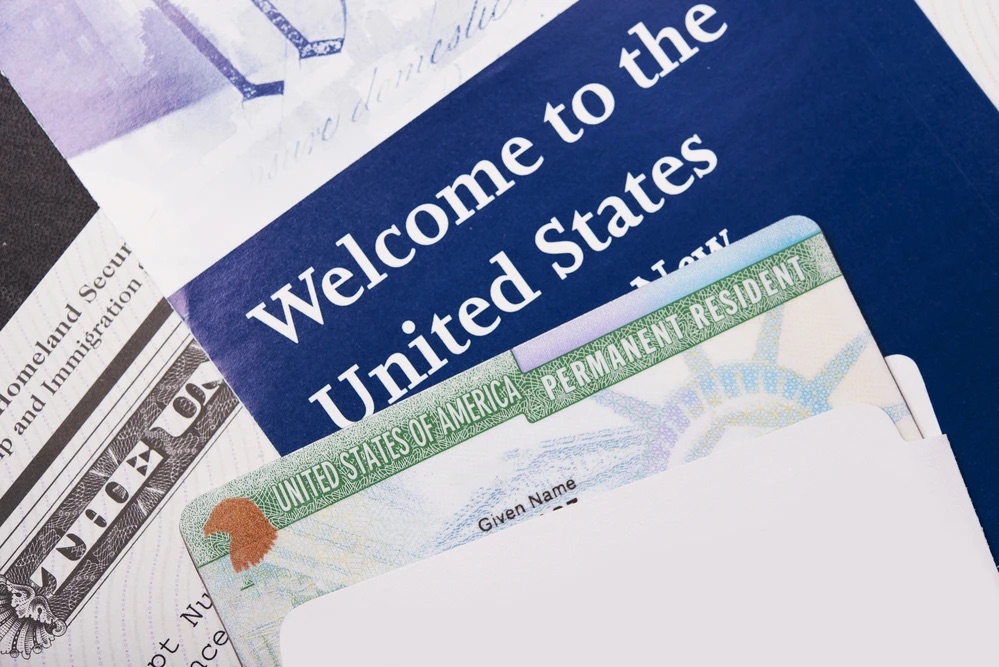Papers that permit presence
The papers every immigrant needs to carry
Commentary: These are the essential documents every immigrant living in America needs to carry.

For most of my life, I appreciated being American, convinced I was born into the “land of the free” and the melting pot of cultures. But when President Trump was elected, my heart sank along with those of my international friends from places like Bangladesh, Mexico, and Dubai. Staring at the televised election last November, I gasped out loud for my abuelita, who watched the same channel in silence, next to our right-leaning relatives. Though we share the same blood, we don’t share the same freckled pale skin, blue eyes or fears. I don’t “look” Latinx, and in turn, I avoid the scrutiny that comes with being prejudged as a criminal — a privilege not shared by many immigrants.
My abuelita was just one person in one living room, but her fear echoes throughout thousands of immigrant homes throughout the United States. Local CNY organizations say they refuse to allow these fears to go unseen.
We are living in a climate of political and legal limbo, advocates say. The Trump administration has enacted a laundry list of immigration policies, instilling fear in many immigrant communities.
“We have witnessed the deep fear and humiliation caused when people are treated as disposable rather than as human beings,” said Ana Menez-Vasquez of the Western New York Rural and Migrant Ministry.
For many immigrants, daily life now hinges on the papers that permit their presence. Syracuse-based immigration attorney Jose Perez urges permanent residents to always carry a Green Card — it should guarantee safety and is proof that you did everything right.
Green Cards prove you are in the U.S. legally and allowed to work and study. But their protection has become increasingly unreliable. Across the country, legal immigrants who have complied with the system are being detained and sent to countries they have not been to in decades.
If your citizenship is pending, Perez said he advises carrying a work permit, driver’s license and any other document with your photo and birthdate.
Passports should be an undeniable protection, level of protection depends on the type you carry. U.S. passports are the most secure; they establish citizenship and grant specific privileges, such as voting and freedom of movement. But if you have a foreign passport, use it only as a “last resort,” Perez said.
“Immigration [agents] see that you have a passport from another country and can assume that you don’t have papers,” he said. “With the times that we have now under this administration, that may be the problem.”
The recent U.S. Supreme Court ruling allows ICE agents to profile based on employment, accent, appearance and neighborhood during patrols. Given this expanded authority, knowing your rights is essential. Red Cards, which are printable in 49 different languages, protect your rights to silence and unreasonable searches, which are constitutional rights applicable to both documented and undocumented individuals.
“Do not speak,” Perez says he tells clients. “Do not concede that you are from another country unless they are forcing you. Don’t antagonize officers.”
Though ICE encounters can be tense, advocates stress the importance of staying calm; otherwise, authorities may have grounds to intensify the situation. Perez echoed the sentiments of many advocates, saying that following the rules, unfortunately, still does not provide immunity to detention.
The Trump administration’s policies have brought fear, chaos and cruelty to communities nationwide. Documentation may offer some protection, but it also solidifies that immigrants must prove their right to live in a country that once promised them opportunity–and how little that proof can guarantee.
“We need immigration reform,” said Perez. “We don’t need rounding up people by the look of them, nationality, accent or by different cultural backgrounds.”
